Over the weekend, I read an article by my friend Andrew from Flytrippers about travelling from Canada to the United States to get the COVID-19 vaccine. I was pleasantly surprised by how straightforward Andrew’s experience was.
For many Canadians who are anxiously awaiting their first dose of the COVID-19 vaccine and then facing a long wait before the second does, it seems that all you need is a spare weekend, a tolerance for the 14-day quarantine upon returning to Canada, and a handful of airline and hotel points to solve the vaccination problem many months ahead of schedule.
In this article, I wanted to explore some of the key considerations around travelling internationally to get the COVID-19 vaccine now that it’s a tangible possibility for Canadians.
Why Travel Internationally to Get the COVID-19 Vaccine?
Canada’s sluggish vaccine rollout efforts have been well-documented in recent months.
Even though we’re smaller than many of our peers on the global stage like the US and the UK, the prevailing sense is that our government could’ve done much more to procure vaccines in the early months of 2021, rather than wasting resources on, say, poorly thought out and even more poorly executed hotel quarantine measures.
At the same time, some countries around the world now have an oversupply of vaccines, most notably our neighbours to the south.
Many US states are indicating that the supply of vaccines is outstripping the demand, and as a result, some states are explicitly allowing non-residents and non-citizens to receive the COVID-19 vaccine. After all, the best protection from the virus is achieved by vaccinating as many individuals in the area as possible.
As a result, Canadians who are facing a longer wait to receive the vaccine domestically might be tempted to make a trip across the border and get it over with.
After all, on an individual level, the risk of contracting the virus from the mere act of travelling remains relatively low, as long as you commit to wearing a mask, socially distancing, and completing the 14-day quarantine when you return to Canada.
For Canadians who are able to complete the 14-day quarantine upon return and can deal with a handful of logistical challenges along the journey, the question is simple. If you could travel to the US to get the vaccine, protect yourself from the surging variants in Canada, and enjoy a quicker return to normalcy in terms of both travel and daily life – why not?
Should You Travel to Get the COVID-19 Vaccine?
From an ethical standpoint, I don’t see any issues with travelling internationally to get the COVID-19 vaccine, as long as your chosen destination is explicitly offering vaccines to anyone and everyone in the area, including non-residents.
Not every US state fits this bill: some have yet to fully open up vaccines to all individuals aged 16+, while others do have a residency criterion with the intention of prioritizing vaccines for in-state residents.
In either of these cases, by strolling up for a COVID-19 vaccine as a non-resident, you’d be taking the place of someone else in line who’s more entitled to that shot than you are.
On the other hand, as of late March, a few US states like Arizona, Louisiana, and Texas have explicitly opened up their vaccination efforts to anyone over the age of 16, and have explicitly clarified that there is no residency requirement:
- Arizona Department of Health Services Director: “Out-of-state residents, even folks from out of the country, who are in Arizona can get the vaccine here”
- Louisiana Department of Health: “Everyone in Louisiana ages 16 and older is eligible to get vaccinated against COVID-19.”
- Texas Department of Health: “There is no residency or citizenship requirement to receive a COVID-19 vaccine, and a social security number is not required.”
For Canadians headed to these states to receive a COVID-19 vaccine under full eligibility, I see no ethical concerns.
Do You Need to Travel to Get the COVID-19 Vaccine?
Just because you can, doesn’t mean you should. And just because you arguably should, doesn’t meant you absolutely must.
While our own vaccination efforts in Canada endured a slow start, by all accounts they’re ramping up quickly, and we’re doing quite well on a per-capita basis compared to many of our G20 peers (outside the much bigger US and UK).
There’s a good chance many of us will be able to get our shots sooner than we had initially anticipated, especially with the single-dose Johnson & Johnson vaccine being scheduled for rollout at the end of April too.
With a little bit more patience and a few more months of commitment to fight off the potent virus variants, I do believe most Canadians will be vaccinated in time to enjoy a fairly normal summer, getting to safely enjoy the company of their friends and loved ones once everyone’s had their shots.
Now, given the miserable year that we’ve already endured, the rapid and enviable pace of vaccinations south of the border, as well as the very real concern of some of the virus variants for which Canada has become something of a hotspot, I don’t doubt that some Canadians will find the prospect of waiting eight more weeks for their first vaccine dose to be eight weeks too many.
If that describes you, then you very much have the option to hop across the border for a single-shot J&J, rest for two weeks at home, and enjoy some semblance of normalcy and greater peace of mind.
Ultimately, though, I imagine most Canadians wouldn’t find the need to embark on a vaccine trip, given the burdensome 14-day quarantine upon return (with an expensive hotel stay if you’re flying back) and the impending upturn in the situation here at home anyway.
Considerations for Travelling to the US for the COVID-19 Vaccine
If you do decide to partake in vaccine tourism, you should make sure to plan for the usual wrinkles associated with crossing international borders in the pandemic era.
While the land border between Canada and the US has been closed since March 2020, there have been no restrictions on air travel from Canada to the US. Just like any regular trip, a simple round-trip flight (whether booked with points or cash) to a US state with an open-to-all vaccination policy would do the trick.
However, flying back into Canada would entail an expensive three-night hotel quarantine stay, which might put a damper on your excitement of getting the vaccine.
Therefore, it may be a good idea to book a one-way flight from your Canadian point of origin to your chosen US destination, and then another one-way flight to a US border city so that you can cross the land border back into Canada.
You’d just need to pick up a (most likely free) COVID-19 PCR test at a local pharmacy, before crossing the border with a one-way car rental, a limousine service, or a series of Uber or pre-arranged car rides on both sides of the border.
You’d then head directly home for your 14-day quarantine, without having to fork over a small fortune for a three-night quarantine hotel.
Now, in terms of actually making an appointment for your COVID-19 vaccine in the US, by all accounts it appears to be a very smooth and straightforward process.
The Vaccine Spotter project does an excellent job of sourcing local vaccine appointments.
Simply pick your desired state, filter for the single-does Johnson & Johnson vaccine, and you’ll be presented with a list of available appointments over the upcoming week and a link to make your booking.
After that, based on Andrew’s experience, it’s just about showing up, receiving a simple jab, and walking away with that prized vaccination card that is sure to play such a critical role in our lives going forward.
Conclusion
Several US states are now openly offering the Pfizer, Moderna, and Johnson & Johnson vaccines to anyone individual within state borders, regardless of age, residency, or citizenship.
This opens the door to Canadians who would like to receive the vaccine sooner than they might be eligible to do so here at home; however, ultimately I think most Canadians would be best-served with some extra patience rather than going through all the trouble.
Still, reading Andrew’s account of his experience, I found it hard to wrap my head around the concept that a simple weekend trip south of the border could spell the end of the nightmare.
Personally, I’ll soon be taking a trip to China to visit my family, so I’ll likely get my shot when I’m there. But if I didn’t already have travel plans, I think I’d be very tempted to pop down to one of the southern states, get my single dose, and return home with the additional peace of mind and the greater flexibility to plan upcoming trips.
Whether you decide to travel for the vaccine or wait your turn here in Canada, we’ll all be able to draw a line under this sad chapter of our lives very soon, and that’s something we can all look forward to.


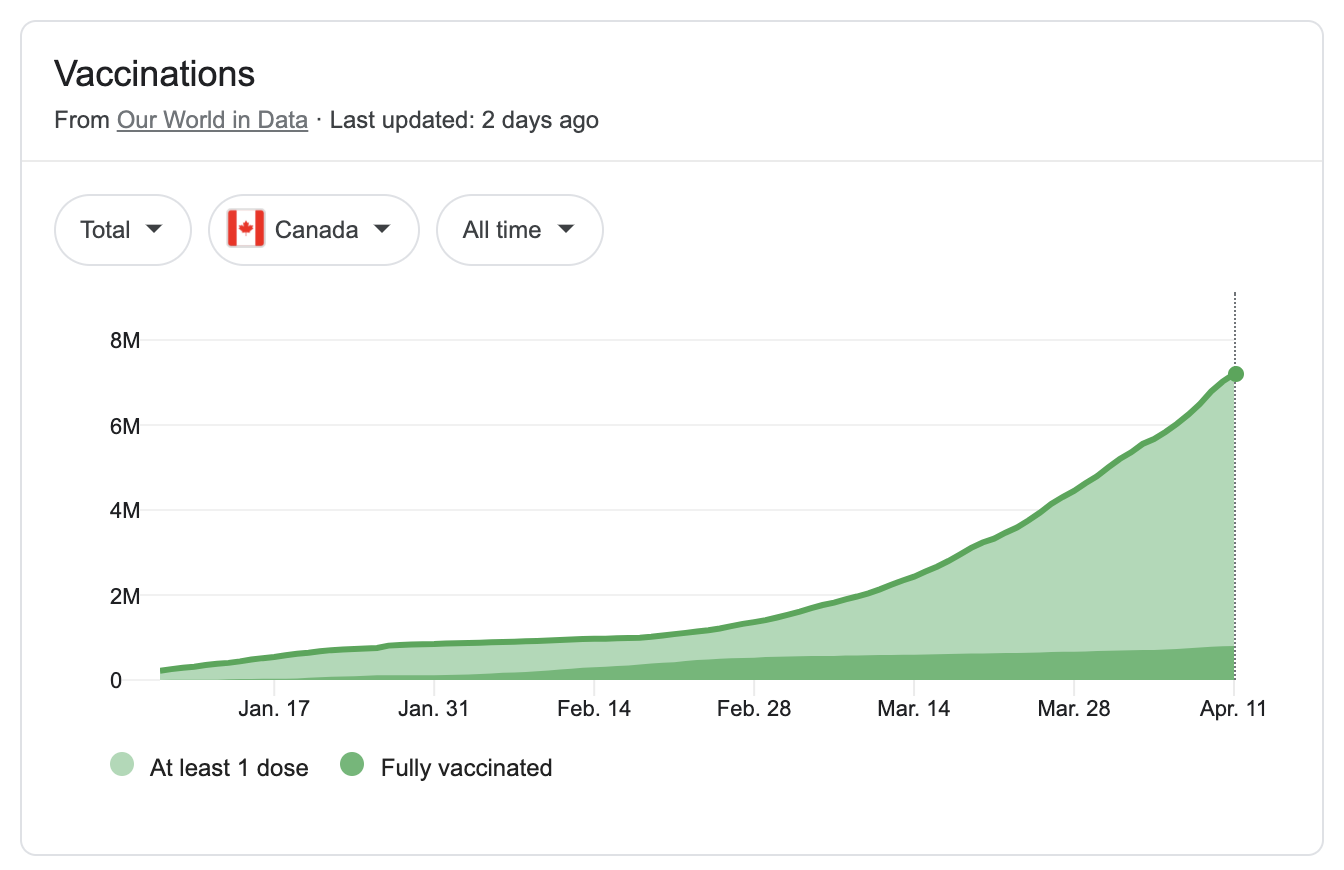
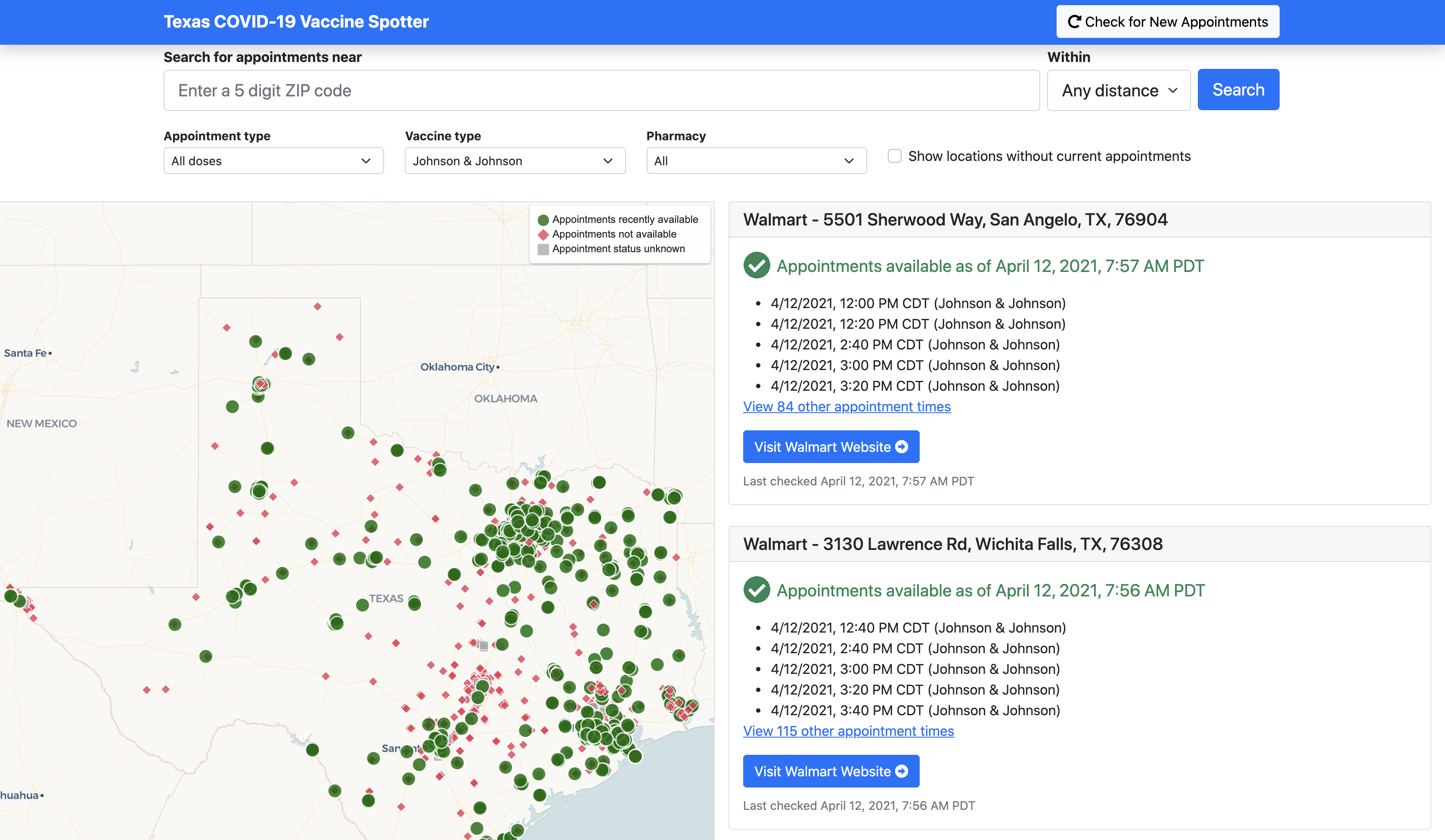









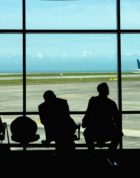
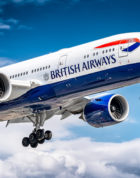
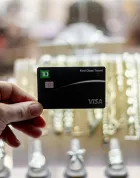

I find it hilarious that you see nothing wrong ethically just because it’s possible to do it. That’s not ethics. Ethically this is a gross exercise of privilege for the sake of waiting a few weeks. Man up- abide by restrictions like everyone else. If everyone did this the virus would be circulating more than it is now. That’s the ethics of it.
You could also make the case that it’d be a wise exercise of privilege in the battle of vaccines vs. variants; given the state of the vaccine oversupply in the US, if everyone did this the virus would be under a lot more control than it is now under the poorly coordinated and poorly enforced policies up here in Canada.
Of course, because ultimately only a few Canadians will choose this route, I don’t believe it’s in the best interest of every Canadian to do so – but I don’t view the ethical debate as a single-faceted one.
If everyone. did this the virus would most certainly not be under a lot more control. There are low numbers of infection associated with travel currently because not that many people are doing it. Again- what is this logic- you state because ultimately a few Canadians will choose this route – it’s not in the best interests of every Canadian to do so? What does that even mean? It’s not in the best interests of humanity to do this and that’s the end of the debate from an ethical perspective.
Well, what it means is outlined in the article. In concrete terms, travel restrictions and 3-day hotel / 14-day home quarantines make it quite burdensome for many Canadians to travel for the vaccine, and therefore easier and more straightforward to wait it out a few more weeks.
But if we’re opening it up to the question of “what would happen if everyone did this”, if everyone got vaccinated, the virus would certainly be under a lot more control. And if we’re talking about the “best interests of humanity”, it’s certainly in the best interests of humanity to be vaccinated as early on as possible.
The practicality of the matter (or lack thereof) is as clear-cut as you suggest. The ethics aren’t necessarily so.
What you are missing is any empirical evidence that if everyone travelled to get vaccine – that would not cause increased incidence of virus.
I did exactly that last week – however, I am already going to the US every few weeks for an essential medical treatment, so I am quarantine exempt (finally! It didn’t use to be – at one point I was on 5 quarantines at the same time!).
I booked my J&J shot in Erie, PA. Pennsylvania is vaccinating non-residents and I qualified. Nobody asked any questions. They actually said in the booking that you did not need to provide ID to get the vaccine.
I got my shot 2 days after my father died of Covid in Brazil. I literally cried when I parked outside the pharmacy.
Now, with the 2 shot vaccines I think it is just too much hassle if you are not test/quarantine exempt.
Given that here in Canada you are now waiting 4 months for the second shot, very few will be vaccinated by summer. Lots of people will have a single dose but the manufacturers (and the government of Canada website) still say 21 days until your second shot.
How effective will that second shot be that much later?
My thoughts are to get the first shot in Canada then potentially get my second shot in the USA to keep to the recommended schedule.
Just today, USA announced USA will halt J&J (Johnson & Johnson) due to the possible links to blood clot (just like AstraZenica). So anyone who try to go south to get the JnJ shot will have to reconsider: First, would the blood clot issue border you? And, how soon will the J&J to be resumed in USA? Otherwise, to get the Pfizer or Moderna shot in USA, you have to wait for 4 weeks in between. That means you either spend 4 weeks in a hotel or unless you know someone who would shelter you in the State you want to get the shot… but who will? It is a high risk venture…. I think better just wait for the vaccine in Canada, likely within a month and a half, most adult Canadians would be able to get the first shot. In the meantime, just play safe: mask up, social distance, no gatherings, no travel….God bless Canadians….
The incidence rates of blood clots is low, 6 cases in 6.8 million shots. So 0.88 blood clots per million shots given. Commercial aviation had a death rate of 0.27 fatal accidents per million flights. If you need to fly 4 flight segments to get the vaccine, your odds of dying in an aviation accident is higher (0.000088% chance of a blood clot, 0.00011% chance of a fatal aviation accident).
With J&J having a major drop in supply and the temporary hold on distribution (although I guess manufacturing can catch up while they’re not distributing), that’s probably the bigger issue.
That being said, it raises the question of health insurance while being vaccinated. Most (if not all) policies won’t cover trips made for the purpose of medical treatment nor any experimental or elective treatments and consequences.
Please note that being vaccinated does not mean you can forego the indoor masking and other requirements. I got my first shot in Canada last week, and was provided a guideline with instructions to continue the current safety practice.
Let me point you to this Reddit thread explaining how US citizens living in BC can get a same-day COVID vaccination in Washington state:
https://www.reddit.com/r/vancouver/comments/mmbwm6/fellow_americans_you_can_get_your_covid19_vaccine/
No need to fly, stay at a quarantine hotel, or even spend more than 10 – 12 hours outside of Canada.
Another 8 weeks, worst case. Most likely will be sooner. No rush to go abroad for it since being vaccinated doesn’t exempt you from anything in Canada, for the time being.
This is all assuming that the actual reported information is accurate about vaccines. If you actually look at the clinical trial results for example for moderna and Pfizer the vaccines only did 1% better than the placebo groups. The quoted 95% rate was just compared to itself not to the control group.
This is absolutely false. The first shot of mRNA vaccine is 22 times more effective than placebo. Some of the data, however, was corrupted because the placebo group participants went to their local clinic to get the actual vaccine DURING the trial. It resulted in both placebo and vaccine group participants getting inoculated.
https://www.npr.org/sections/health-shots/2021/02/19/969143015/long-term-studies-of-covid-19-vaccines-hurt-by-placebo-recipients-getting-immuni
https://www.pfizer.com/news/press-release/press-release-detail/pfizer-and-biontech-conclude-phase-3-study-covid-19-vaccine
That’s simply not true. I suggest you consult an accredited source. This whole discussion is a bit odd. Of course we are all fed up being in the same place – but the regulations on travel are there for a reason. What if you go to the US, get vaccinated but pick up Covid before the vaccination kicks in – or worse – pick up one of the variants instead that is happily looking for a way to kill more people. Suck it up people and save yourselves for fabulous travel when it’s safe to do so.
What Jim said isn’t quite right but is closer to the truth than mainstream media would have you believe this is taken directly from FDA report on trials:
“In a mid-November analysis of 36,621 participants randomized 1:1 to vaccine or placebo who were included in the per-protocol efficacy analysis population of participants without evidence of SARS-CoV-2 infection prior to 7 days after completion of the vaccination regimen, efficacy in preventing confirmed COVID-19 occurring at least 7 days after the second dose of vaccine was 95.0%, with 8 COVID-19 cases in the vaccine group and 162 COVID-19 cases in the placebo group.”
Where the 95% comes from is from dividing the covid case in the vaccine group by the amount in the control group 8/(162+8) = 0.95. However if you look at each groups infection rate its 8/18310=0.0004=0.04% for the vaccine group and 162/1831=0.0088=0.88% which is a difference of 0.84% or approximately 1%. In other words the vaccine showed you were 99.96% safe while placebo 99.12%.
Link to FDA Document: https://www.fda.gov/media/144245/download
Ricky, to which COVID vaccine(s) will you have access while visiting China? The SinoVac vaccine is only about 50% effective.
I’ll probably try to get the Sinopharm, which was 70–80% last I checked and has been taken by a few of my friends in the UAE with no issues.
If I make it to Hong Kong, I might be able to get the first dose of Pfizer there too.
Sinopharm claims 79% efficacy but has not released any data. I’d be very skeptical about this claim.
I do share the skepticism, which is why I’ll probably look to get an mRNA vaccine as well in the future. For now, any vaccine is better than none.
A couple of small quibbles – I believe you need a PCR test to get on a plane to the US – that does cost money. My parents just came back to Canada from the US – and getting a covid test there wasn’t as easy as you described – they ended up paying around $200 US each for the test that would allow them entry to Canada. I had a similar issue in Arizona.
And I’ll just rail on the practicality of all of this – Instead of flying Air Canada home – they paid a US airline to fly to Buffalo. Air Canada desperately needs that business – the Liberals policy around hotel stays really hurts them. Keeping in mind they’ve had both vaccines, they paid several hundred dollars for tests, again, paid a US airline, and then paid $300 US to a limo company out of Buffalo. They also took another test at the border, and take another test in Canada in ten days. This is complete insanity. A waste of their money, costly to Air Canada, and costly to the taxpayer.
You don’t necessarily need to do a PCR test to fly to the US, they’ll accept an antigen test as well. As an example, last I checked, YYZ was giving out free antigen testing for travel to the US (in exchange for your personal data).
Did they fly back or cross by land? My comment about the availability of free tests was specific to the border towns, based on Andrew’s article.
Most Canadians would probably share your concerns about practicality, which is why I don’t think it’s necessarily a solution that has mass appeal.
ricky, i may be completely wrong about this but i understood that it was illegal for a canadian citizen to drive a car with US registration into canada and that this includes rental cars.
this could be just internet lore or could have been true in the past. what do you know about it?
In my experience, no issues. Rental agencies may have their own rules about rentals (one way or return) going between countries, but I don’t believe CBSA / OPP / local police have any issues. Rental agencies sometimes rent foreign plated vehicles out in Canada anyways.
When I drove a one-way FL plated rental into Canada, the CBSA did ask if the car was mine. I said it was a rental and there was no further discussion about that.
I’m not completely familiar, but it seems like this may have been true in the past but was temporarily lifted during the pandemic. This aligns with the experiences of many Canadian travellers who have returned to the country with one-way car rentals or U-Hauls over the past few months to sidestep the hotel quarantine measures.
Last I checked – the rental car companies had made it very difficult to rent a car in Buffalo or Detroit and return it to Pearson – It was a two day minimum when I did it. Recently I noticed a three day minimum – and it may not still be available – they also jack the rated – it was $160 per day when I last looked for a cross-border car.
There is a limo company out of Buffalo that will drive you to Toronto for about $300 US.
Yep, it’s precisely because of the difficulty with one-way car rentals that many have resorted to renting U-Hauls or taking the limousine service instead. I imagine business must be booming now for the limo company after a rough year.
IMO traveling for the lower efficacy of J&J doesn’t seem worth it to me. Given the fixed costs of travel (flight, testing, crossing back to Canada) and flights / transportation being the highest risk, mattress running for a few weeks between doses for Moderna / Pfizer would be the way to go IMO. Within a mid-June timeline for Canadians to get their first dose of Pfizer / Moderna, the 60-70% efficacy doesn’t seem that desirable to me.
For those who are feeling impatient about the vaccines, I imagine that any vaccine is better than none (for both peace of mind and to be able to do things like international travel), and even if they get a less effective vaccine now they’ll still have the option of getting a more effective one later on.
Agreed on principle, though, a longer stay in the US for the mRNA vaccines wouldn’t be a bad idea if you can make it work.
Agreed completely. In fact I think heading there for a vaccine at this point is quite frankly absurd.
For me- with three kids in school, that may not actually be in the classroom the rest of the year, it kind of makes sense to use the time to take a vacation and get the vaccine.
Totally agreed, indeed absurd.